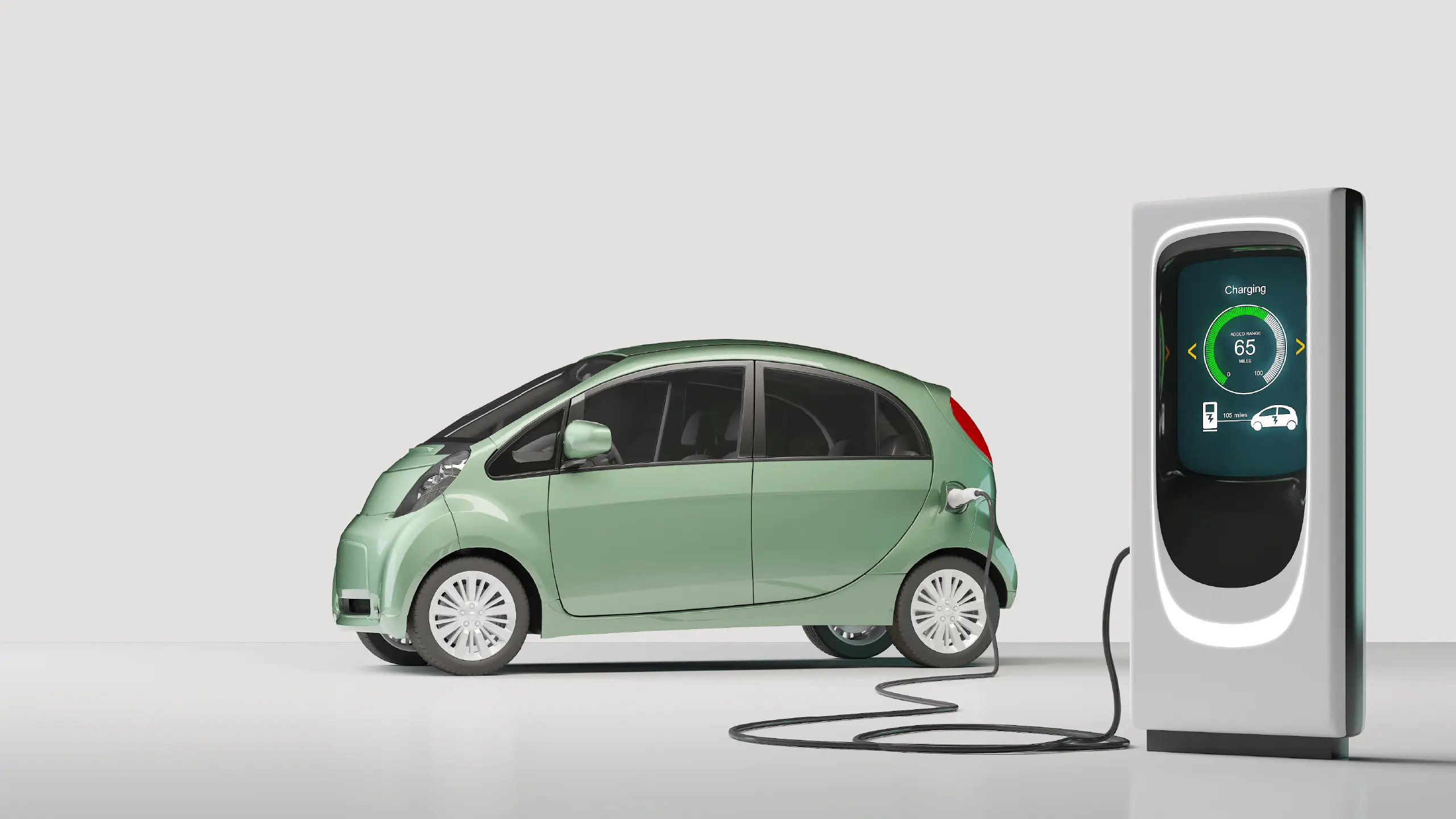
Do Brand Values in Automotive Industry Drive Auto Sales? How Sustainability Messaging Impacts Buyer Decisions
In today’s automotive landscape, the spotlight has shifted from mere horsepower and torque to something far subtler yet incredibly powerful: brand values in automotive industry. Consumers now care not only about how fast a car accelerates but also what the brand stands for. This means sustainability messaging in the auto industry isn’t just fluff—it’s fueling car sales. Enter Blackwater, a market research company that understands this dynamic better than most. Through rigorous studies and clever analysis, Blackwater helps automakers understand how consumer perception of sustainable car brands truly shapes buying decisions.
Let’s take a witty, intelligent journey through why green branding in the automotive sector matters—especially when it comes to the impact of brand ethics on car sales.
Why Brand Values Are the New Horsepower
Not too long ago, buying a car was about specs: engine size, fuel efficiency, seat comfort. Brand values might have been an afterthought. But a lot has changed. Environmental consciousness is no longer niche; it’s mainstream. Electric vehicles, hybrids, and the promise of zero-emission mobility dominate headlines. Consumers now expect brands to have a moral compass. A survey by Blackwater showed that nearly seven in ten car buyers say they would choose a more sustainable brand if performance and price were comparable. That’s the clear link between brand values in automotive industry and actual auto sales.
Of course, saying “We care about the planet” isn’t enough. Buyers want to see real action. Smart brands — the ones whose values are genuinely baked into their mission, manufacturing practices, and messaging — are the ones winning. And when those values are communicated effectively, that’s where sustainability messaging in the auto industry becomes persuasive rather than perfunctory.
Sustainability Isn’t Just an Extra: It’s the Core of Consumer Trust
Consumers today are skeptical of empty slogans. They want specifics: How many tons of CO₂ has your plant cut? Are your batteries ethically sourced? What is your recycling plan for end-of-life vehicles? Smart brands answer these questions transparently. Consumers pay attention—and spend accordingly.
Blackwater’s market research in global regions revealed that consumers are willing to pay a premium—on average 5% to 8% more—for a car from a brand with verified eco‑credentials. That premium is earned when a brand’s sustainability messaging doesn’t just talk the talk but provides evidence: third‑party certifications, lifecycle emissions data, clean supply chains. Consumers perceive these brands as more ethical, more reliable, and ultimately more future‑proof. That’s the essence of consumer perception of sustainable car brands: it’s built upon proof.
How Messaging Influences Decisions at Dealerships
There’s a subtle alchemy that occurs when brand values and sustainability converge in the showroom. A car salesperson trained in eco‑friendly automotive marketing doesn’t simply pitch 0‑60 times or fuel economy numbers; they weave stories about regenerative braking, recycled interior materials, renewable energy usage at manufacturing facilities, or carbon‑neutral delivery logistics. Buyers pick up on it. It’s no longer just a car; it’s part of a larger ethical narrative.
Blackwater’s research shows that when sales personnel frame features within a sustainability context, buyers are more likely to engage emotionally and make comparisons not solely based on price. Consumers ask questions like “How green is this brand, really?” rather than “Is it cheaper than that other SUV?” That shift in framing often tilts purchase decisions toward brands with strong ethical signals. Thus eco-friendly automotive marketing becomes not just a trend, but a conversion strategy.
Authentic vs. Artificial—Why Consumers Can Spot Greenwashing

One of the big perils for automakers is greenwashing—marketing green values while failing to deliver. Consumers see through inconsistencies: if a brand promotes its EV lineup but still heavily markets gas‑guzzling trucks without transparency about their transition path, skepticism arises. If you claim sustainability but don’t share your roadmap for battery recycling or renewable energy usage, it smells of lip service.
Blackwater emphasizes the need for brand ethics on car sales to be consistent. For example, if a company pledges carbon neutrality, Blackwater research shows consumers check that promise against actual data: energy sources in factories, supply chain carbon footprint, even board‑level sustainability commitments. If any of those threads unravel, consumer trust is lost. And once trust is lost, sales slip. Authentic emotionally intelligent brands hold that trust—and their buyers respond accordingly.
Case Studies: Ethical Branding in Action
Take Brand A, a European EV maker that elevated its sustainability messaging in auto industry marketing by publishing annual environmental impact reports, unveiling a closed‑loop battery recycling program, and converting its entire vehicle production to solar power. Not only did consumer perception of that sustainable car brand skyrocket, but its sales climbed 12% more than expected in year one of the campaign. That wasn’t because consumers suddenly cared more about specs; they cared more about where their money went—and what their car said about them.
Then there’s Brand B, a mainstream automaker that added subtle eco-friendly features—like recycled fabrics in seats—and plastered “eco” messaging in ads, without meaningful data or supply chain transparency. The campaign backfired. Consumer perception remained flat, and some buyers accused the brand of greenwashing. Sales didn’t budge.
Role of Research Firms Like Blackwater

So where does Blackwater come in? Blackwater is the kind of market research firm that doesn’t just measure recall of slogans, but delves into how brand values in automotive industry resonate across diverse consumer segments. Their approach goes deeper: they track feelings, not just awareness; they analyze patterns—not just trends. Using mixed‑method studies—surveys, ethnographic interviews, A/B testing of messaging, analysis of purchase data—they establish correlations between sustainability messages and sales uplift, broken down by vehicle type, region, and demographics.
Blackwater helps brands understand which sustainability attributes carry weight. Is sourcing recycled plastics more persuasive than carbon‑neutral logistics? Does messaging around ethical labor practices in battery production carry more credibility than energy‑efficient factories? Their studies answer these questions with nuance, allowing brands to fine‑tune their green branding in automotive sector.
Then they examine impact: if you change ad copy to highlight “zero waste factory” versus “renewable energy used in production,” how does willingness to buy shift? They run pricing experiments to see buyer elasticity when ethical language is inserted. They model sales trajectories if a brand transitions partially versus fully to carbon‑neutral. And they benchmark competitor messaging to expose gaps. In short, Blackwater transforms sustainability messaging in the auto industry from marketing fluff into actionable, ROI‑driven strategy.
Consumer Segments: Eco‑Warriors vs. Pragmatic Green Buyers
It’s important to note that not all buyers react equally to sustainability messaging. Blackwater divides consumers into archetypes: Eco‑Warriors—deeply committed to environmental values, willing to pay a premium—and Pragmatic Green Buyers—those who care about sustainability but remain cost‑sensitive. A third group—the Neutral Majority—doesn’t prioritize sustainability unless it’s linked to cost savings or performance.
Blackwater’s nuanced insights reveal that Eco‑Warriors respond strongly to stories of carbon‑neutral factories and closed‑loop recycling. Pragmatic buyers respond to fuel‑saving statistics or affordable hybrid options—or to how eco-friendly brand ethics align with long‑term resale value. Meanwhile, the Neutral Majority needs reassurance that sustainability doesn’t raise total cost of ownership. Impact of brand ethics on car sales plays out differently across these groups—and only careful research helps brands craft messaging that lands.
The Price of Not Caring About Values

Brands that ignore values—or treat sustainability as an afterthought—are paying the price. Research highlights that as climate awareness grows, younger buyers (Gen Z and Millennials) increasingly view brand values as integral to their identity. If a car brand seems indifferent to ethical concerns, those buyers may avoid it entirely.
Even beyond product, brand reputation matters. A sustainability scandal—or even exposure of contradictory practices—can damage sales across an entire model range. Meanwhile, brands that lean in, that own their carbon footprint and share their progress publicly, often enjoy intangible benefits: media coverage, loyal advocates, better resale value, and even improved employee morale.
Blackwater’s studies across global markets consistently show that even modest improvements in sustainability messaging can lead to non‑linear increases in sales—especially when credibility is built through transparency. That’s the real power of eco-friendly automotive marketing.
What Automakers Should Do (With a Bit of Wit)
Brands that want to sell more cars while doing right should treat sustainability as a strategy, not a sticker. Start by investing in brand values in automotive industry that align authentically with your manufacturing and design DNA. Don’t slap a green badge on a gas‑guzzler and call it virtue.
Use research. Work with firms like Blackwater to test how different sustainability messages resonate. A/B test your campaign copy—“ethically sourced materials” versus “carbon‑neutral shipping”—and watch which one gets better traction among Pragmatic Greens or Eco‑Warriors. Understand your pricing elasticity— how much more are buyers willing to pay if you make your facilities run on renewable energy?
Build supply chain transparency. Publish environmental impact data. Launch recycling or battery take‑back programs. Let external audits verify your claims. Build stories around ethical labor, renewable energy, closed‑loop design, or carbon offsets—but only if you can substantiate them.
Train your staff. Make sure your dealership teams understand the substance behind the slogans. Sustainability messaging in auto industry that is deployed without coherence across the customer journey—from ad to sales pitch to ownership experience—loses impact.
Track impact. Use sales data and follow‑up surveys to monitor how brand ethics messaging affects buyer satisfaction, referrals, and loyalty. Brands that regularly evaluate their messaging keep ahead of shifting consumer expectations.
In Summary: Why Brand Values Matter—And How to Make Them Sell
In essence, brand values in automotive industry have become a key lever for modern car sales. Sustainability messaging in auto industry shapes not just perception, but real buying behavior—especially when backed by data and transparency. Consumer perception of sustainable car brands is no longer about whether a brand says it’s green, but whether buyers believe it.
Eco-friendly automotive marketing is effective, but only when it’s authentic. Green branding in automotive sector has proven impact—boosting sales among value‑driven buyers and safeguarding trust across demographics. And when brand ethics on car sales is built into strategy, research, and execution, it yields real ROI.
This is where Blackwater excels. As a market research company, Blackwater transforms the vague hope that sustainability sells into a sharp, actionable plan. They help brands understand what words matter, what features convince, and what promises must be kept. With those insights, a car brand can elevate itself in the eyes of consumers.
If your brand believes in more than just torque, if you want buyers to feel better about their purchase, if you want the kind of loyalty that extends beyond product specs—start with your values. Let your sustainability messaging be honest, clear, and measurable. And let Blackwater help you connect the values to buyer behavior. After all, values well‑communicated can drive sales better than any redline tachometer.



